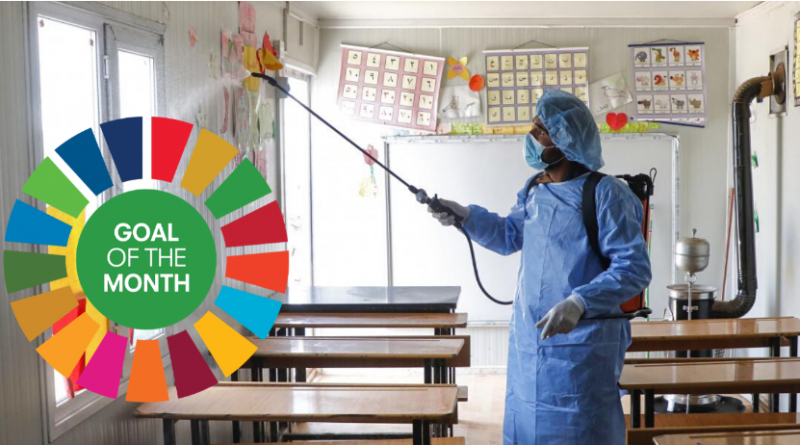Good Health and Well-being.

We are facing a global health crisis unlike any in the 75-year history of the United Nations — one that the UN Secretary-General António Guterres said is “attacking societies at their core, claiming lives and people’s livelihoods.”
Launching a new plan to counter the potentially devastating socio-economic impacts of the COVID-19 pandemic on 31 March, the Secretary-General called for an urgent and coordinated response that focuses on the health emergency as well as addresses the devastating social and economic dimensions of the crisis with an aim to build more equal, inclusive and sustainable economies and societies.
“Everything we do during and after this crisis must be with a strong focus on building more equal, inclusive and sustainable economies and societies that are more resilient in the face of pandemics, climate change, and the many other global challenges we face,” he added.
The Goal of the Month edition for April, which focuses on Good Health and Well-being, looks into COVID-19’s impact on the different aspects of the development agenda — economic, social and environmental. Ahead of World Health Day (7 April), the edition also highlights the work and challenges facing the medical community, paying tribute to the courage and dedication of health care workers on the frontline of the response.

This World Health Day, the World Health Organisation (WHO) is calling everyone to respect, appreciate and support the courageous and committed medical community. It continues to stress the need for more investment in the health care workforce and systems, and the importance of following public health advice.
“We can’t stop COVID-19 without protecting our health workers,” said the head of the WHO, Tedros Adhanon Ghebreyesus, at a recent press conference in Geneva, adding that the continuing shortages of supplies such as gloves, medical masks, respirators, and aprons, are leaving doctors, nurses and other frontline healthcare workers “dangerously ill-equipped” to give proper care to patients.
Marking the International Year of the Nurse and the Midwife in 2020, WHO will launch the first ever State of the World’s Nursing Report 2020 on World Health Day — which will be followed by a similar report on Midwifery in 2021.
Socio-economic Impact of COVID-19
Projections show that there could be up to 25 million job cuts jobs globally (ILO) and up to $3.4 trillion losses in labour income (ILO). The pandemic could cause a 30 to 40 per cent decline in global foreign direct investment flows (UNTACD). An estimated 1.5 billion children are now out of school (UNESCO), many now with no access to school meal programmes.
The editorial looks into the socio-economic impact of the crisis as well as the UN System's response to the growing long-term threats.
* Original article here
2 April 2020
UNDP




